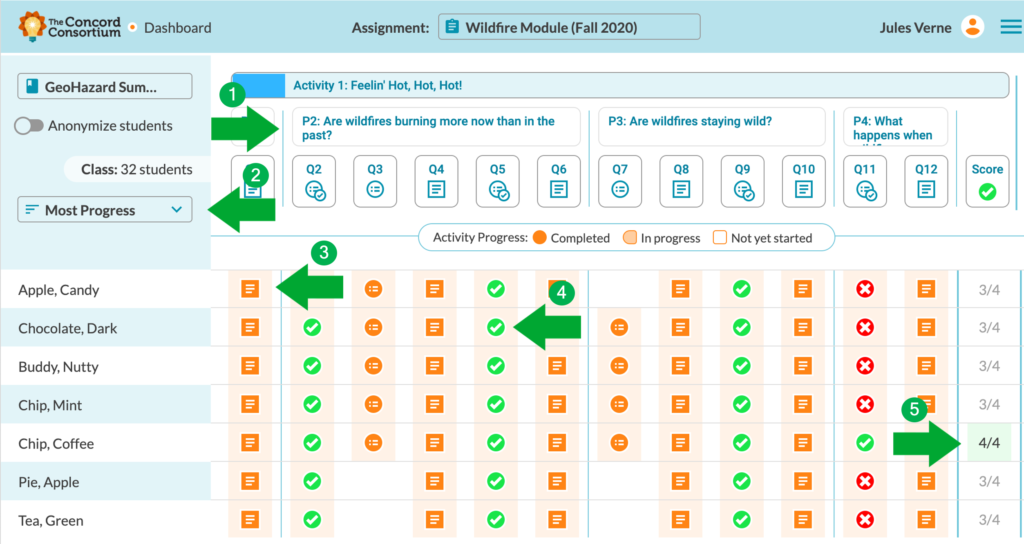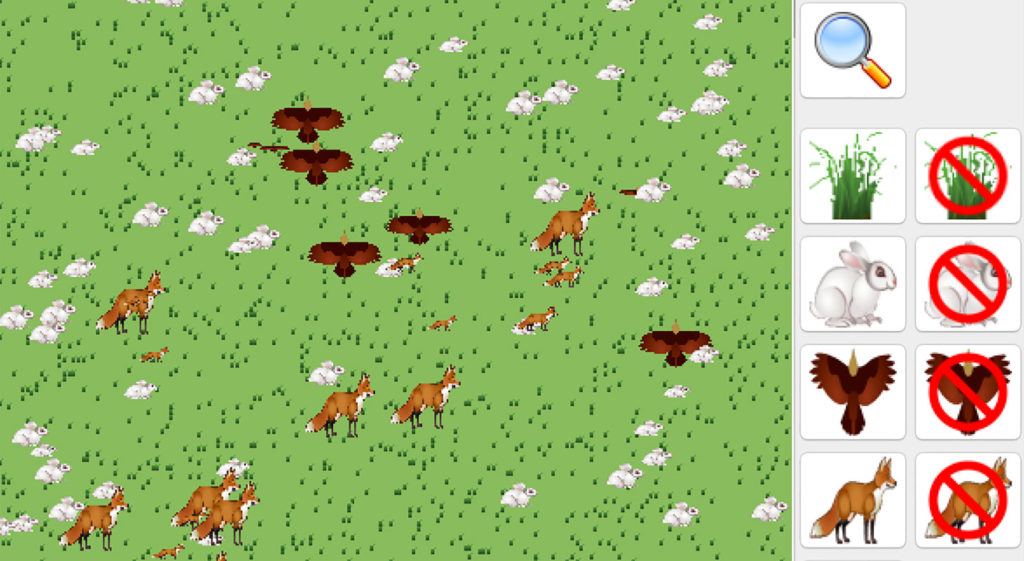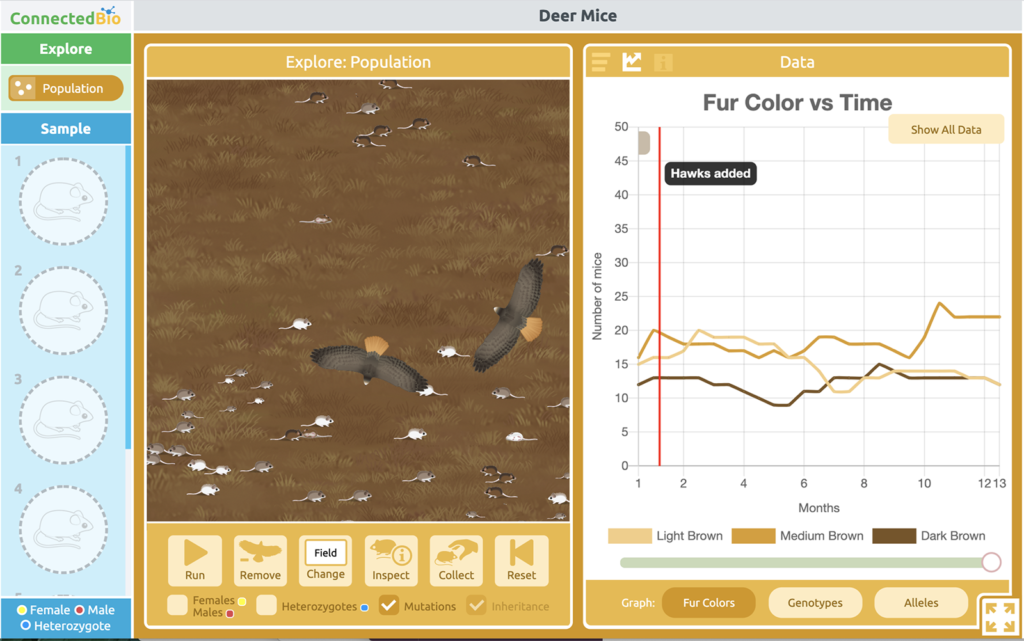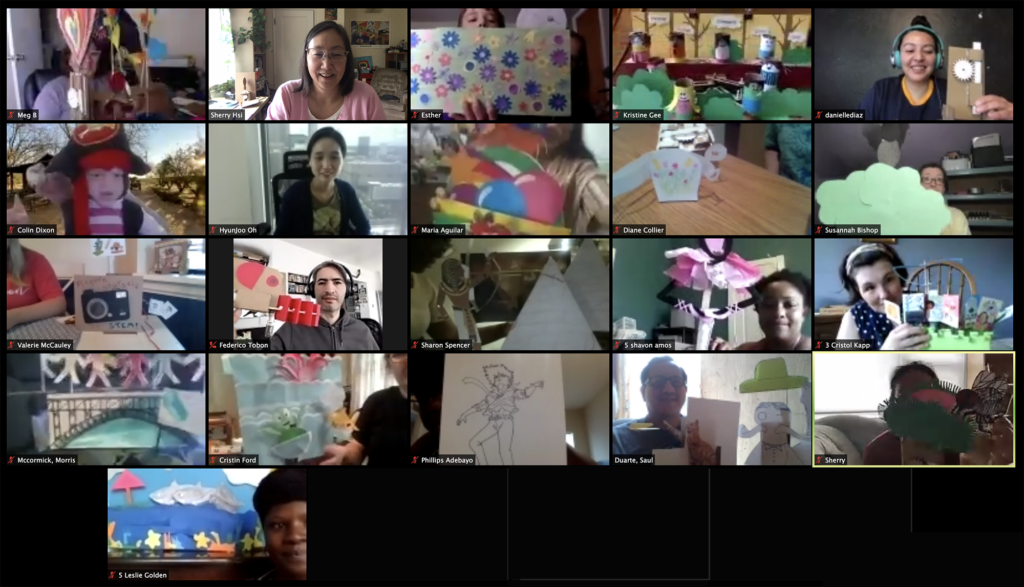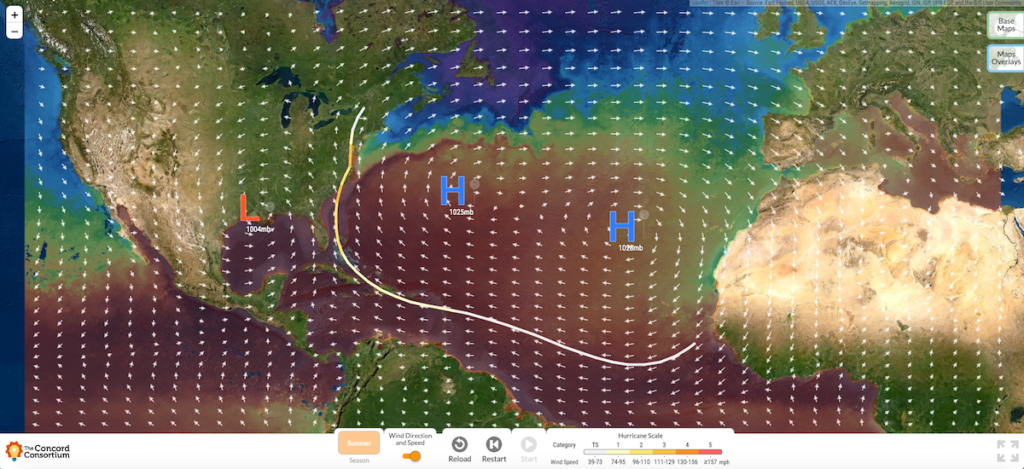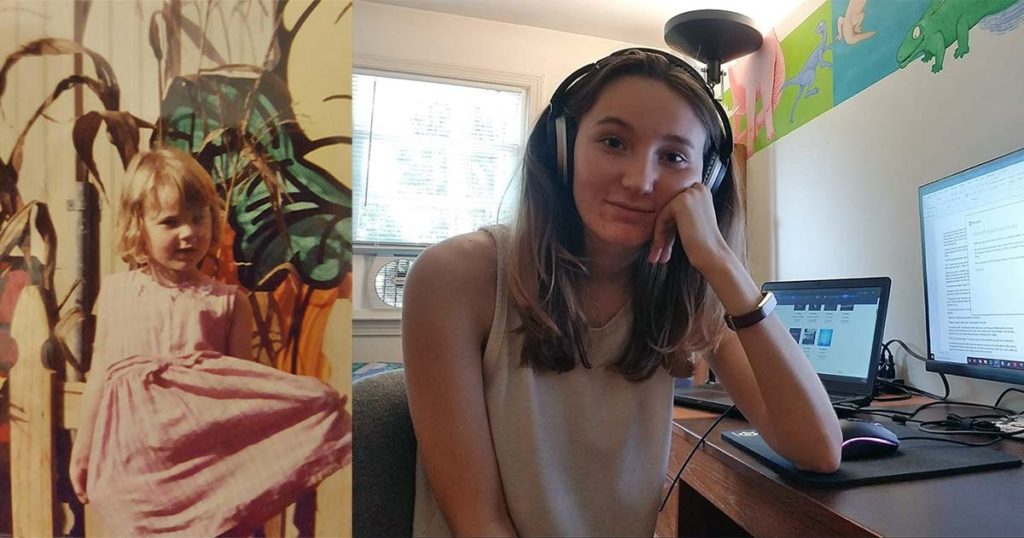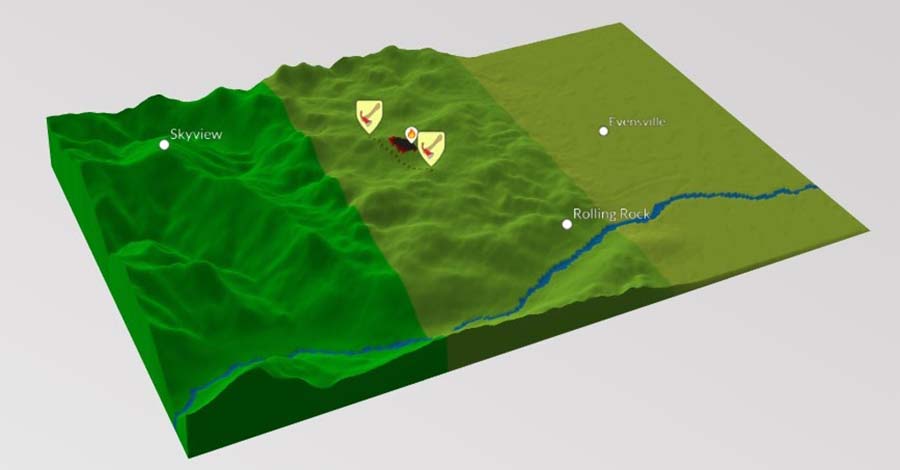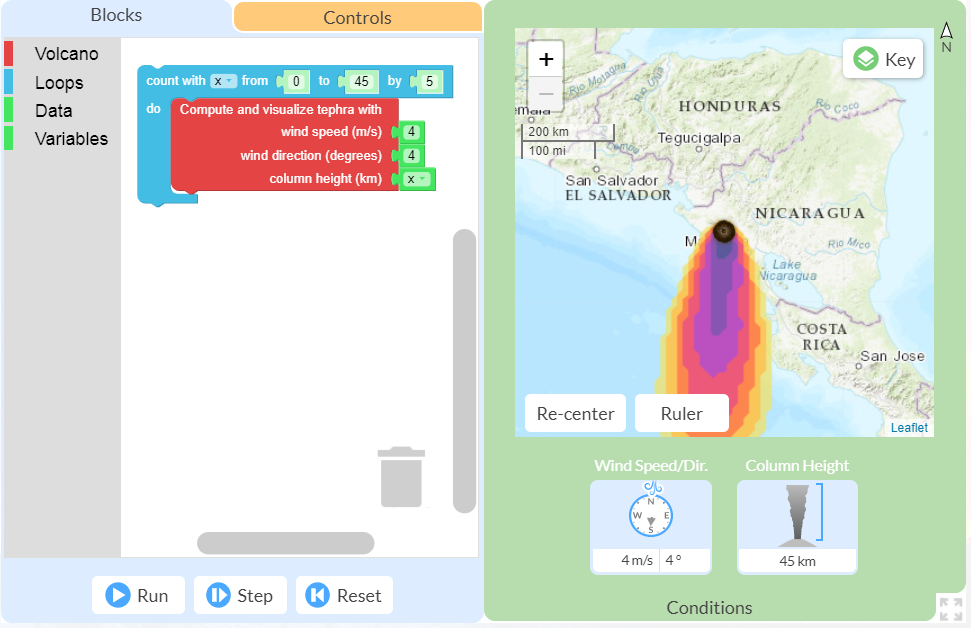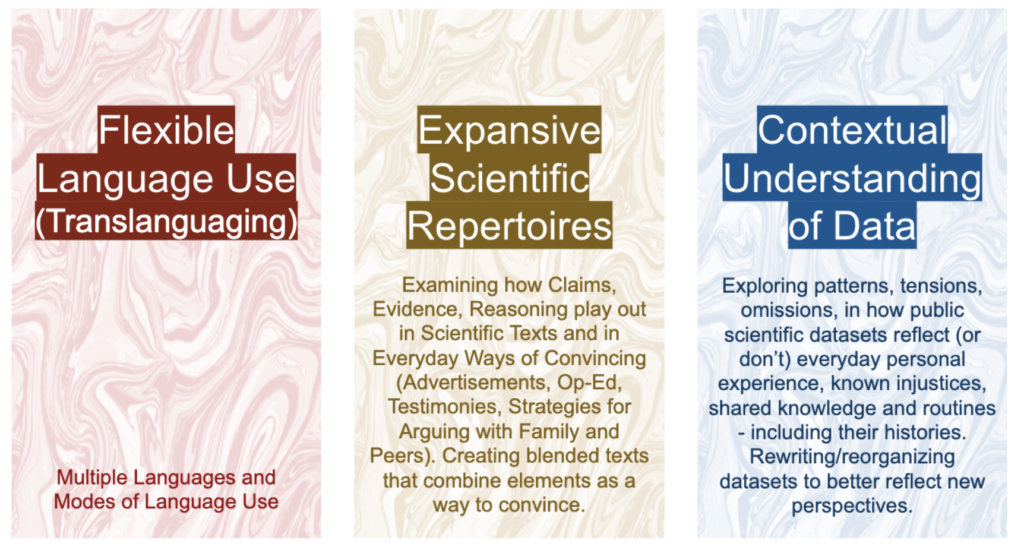Remote and hybrid teaching have made keeping track of student work even more challenging. To address this problem, we redesigned our Class Dashboard and have added it to selected activities and modules in our STEM Resource Finder. Just like past iterations, the newly revised Class Dashboard shows a grid of students’ work that updates in […]
Evolution is a particularly daunting subject to teach and to understand. The evidence for it is indirect and the model rests largely on phenomena that cannot be directly observed, including some that are poorly understood to this day. A research-based set of curriculum materials aimed at upper elementary and middle school students can help. We […]
Rebecca Ellis is a research associate at Michigan State University. The Connected Biology project (ConnectedBio), a collaboration between the Concord Consortium and Michigan State University, recently released Deer Mouse Fur Color: From the Field to the Beach. This free, Next Generation Science Standards-aligned set of 15 lessons guides students through a nuanced understanding of the […]
Earth science classes typically present plate tectonics and the rock cycle as separate and unrelated concepts. Yet land and rock formation are directly related to the tectonic environments in which they form. Indeed, plate tectonic interactions are fundamental to understanding geological processes. A new project funded by the National Science Foundation is focused on teaching […]
Educators know that learning happens not just in the classroom, but all the time and across all settings—from school and to home other formal and informal spaces. In learning sciences research, this is described by a learning ecology framework. Like an environmental ecosystem that sustains biodiversity, learning ecology is a set of complex relationships and […]
After weeks of tracking, prediction, and preparation, we watched Hurricane Isaias run its course and dissipate over northeast Canada. Now that the skies have cleared and the winds have passed, we know all that we can about Hurricane Isaias. We know that as a disorganized low pressure system moving east across the Atlantic, Isaias quickly […]
I’ve been thinking a lot about natural hazards while working on the GeoHazard: Modeling Natural Hazards and Assessing Risks project, which is developing curriculum materials for middle and high school students. While helping the team think about how to communicate about the materials being developed, I’ve also been thinking more about the hazards and risks I’m facing through the COVID pandemic and the impact it has already had on my life.
If you think wildfires are in the news more now than in the past, it’s not your imagination. Rather, the increase in wildfires is a trend that scientists have also noticed. One of the many factors driving this change is due to a rise in global temperatures. Because of climate change, droughts are intensifying and fire seasons are getting longer. Scientists are exploring all the factors that influence wildfire behavior and considering the results of experimental computer models with field data.
This spring I had the opportunity to pilot the new online GeoCode tephra activities developed as part of the NSF-funded Visualizing GeoHazards and Risk with Code project with my 9th grade Honors Earth Science classes in Evergreen, Colorado. I’d been looking forward to the pilot for months, but only a handful of weeks before our […]
Twenty-five middle school teachers from Berkeley, Oakland, and the surrounding areas of northern California recently met online as part of a virtual professional learning workshop called “Telling Data Stories: Scientific Data, Student Experience, and Authorship for Social Justice in Middle School Classrooms.” The workshop was offered by the Writing Data Stories project, a collaboration of […]
